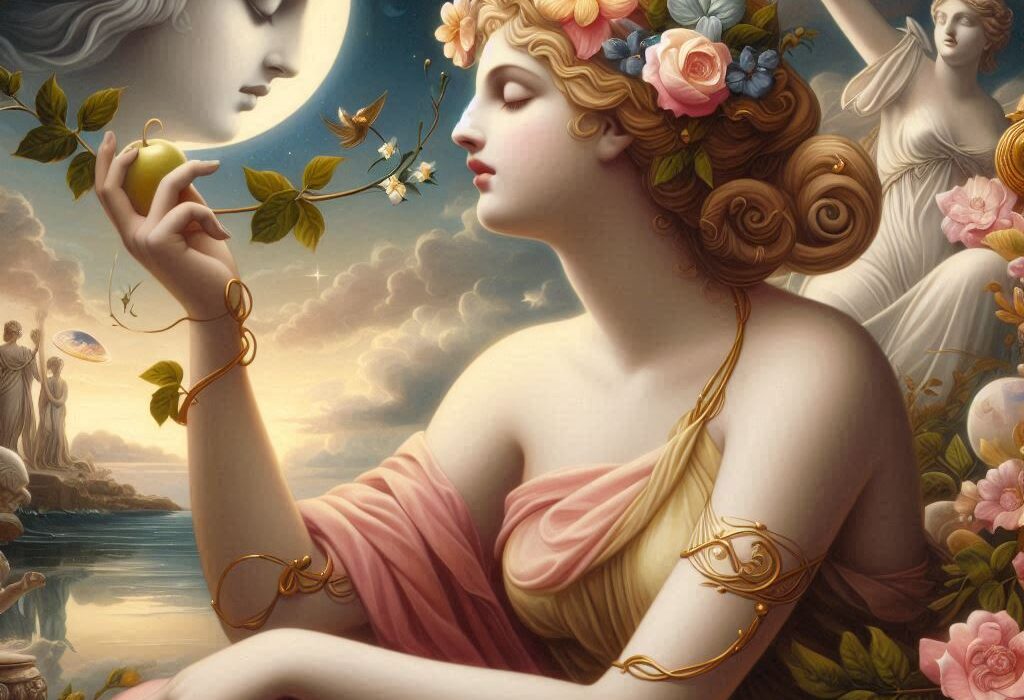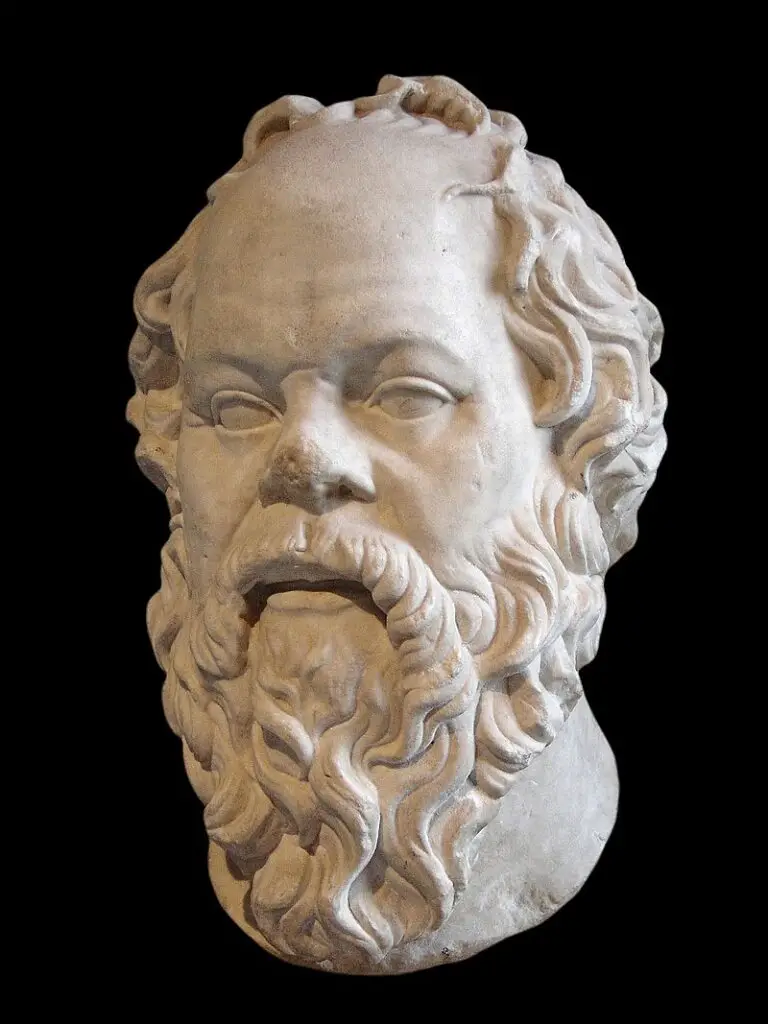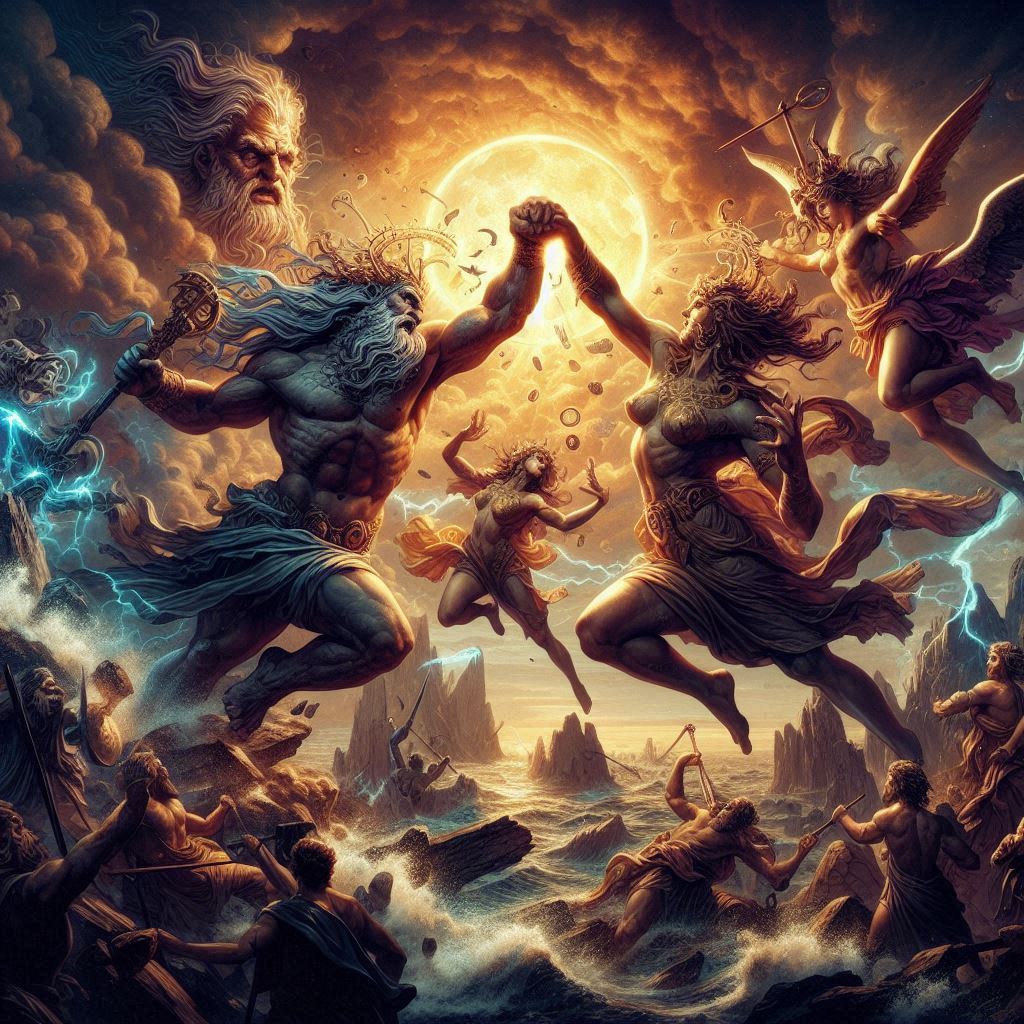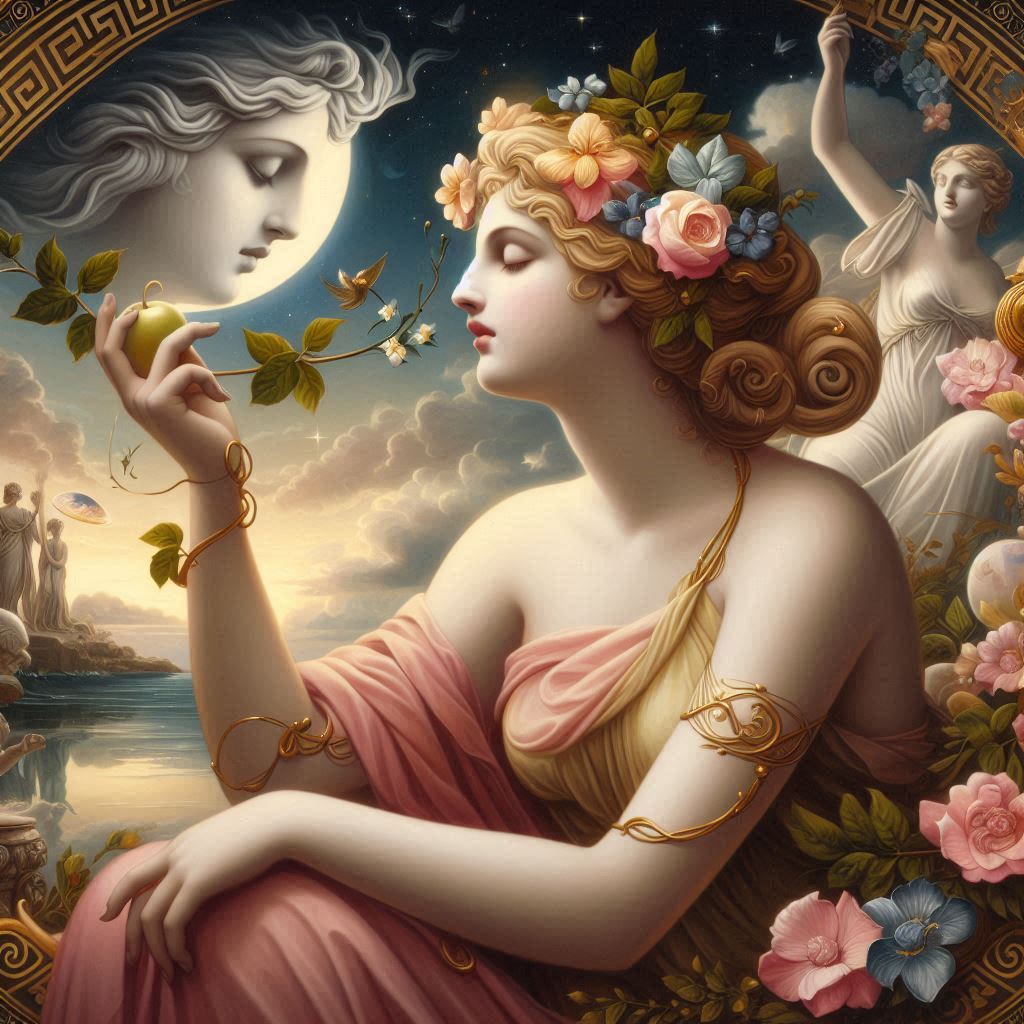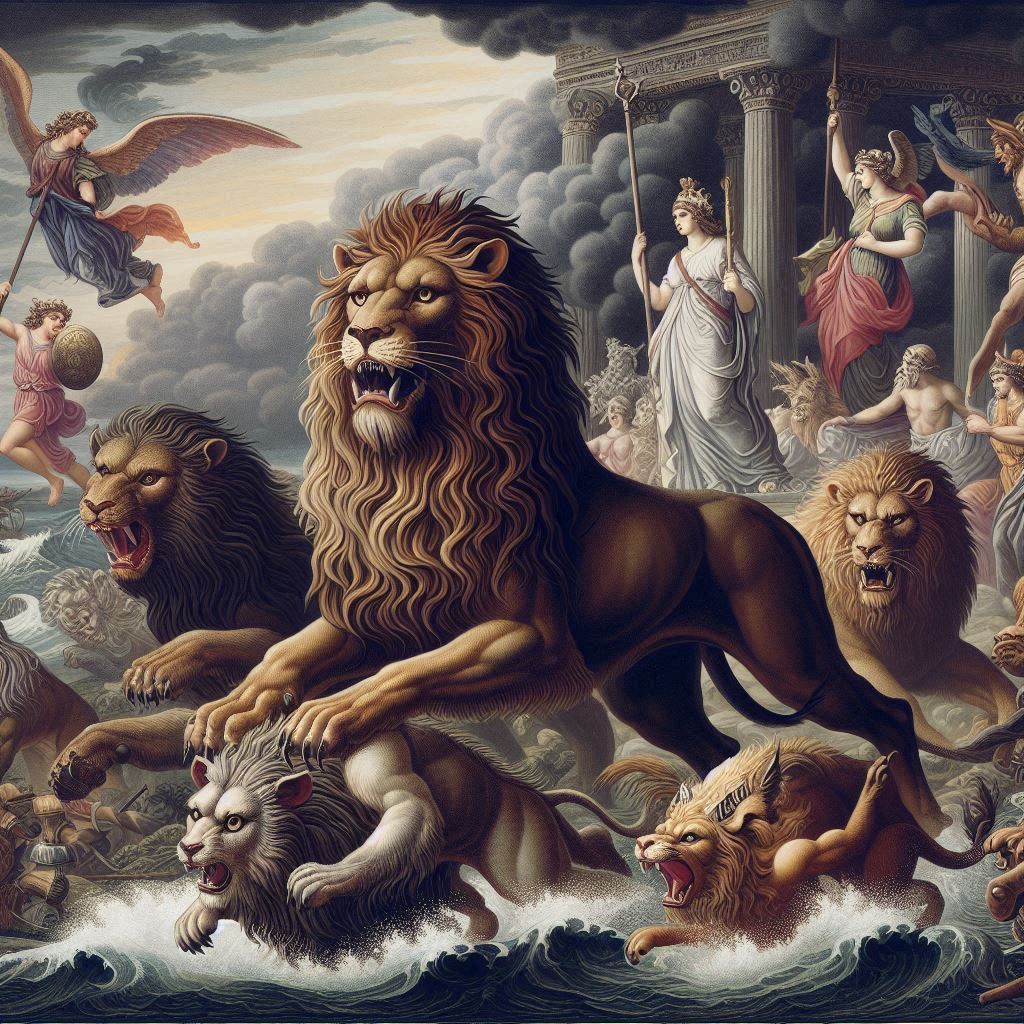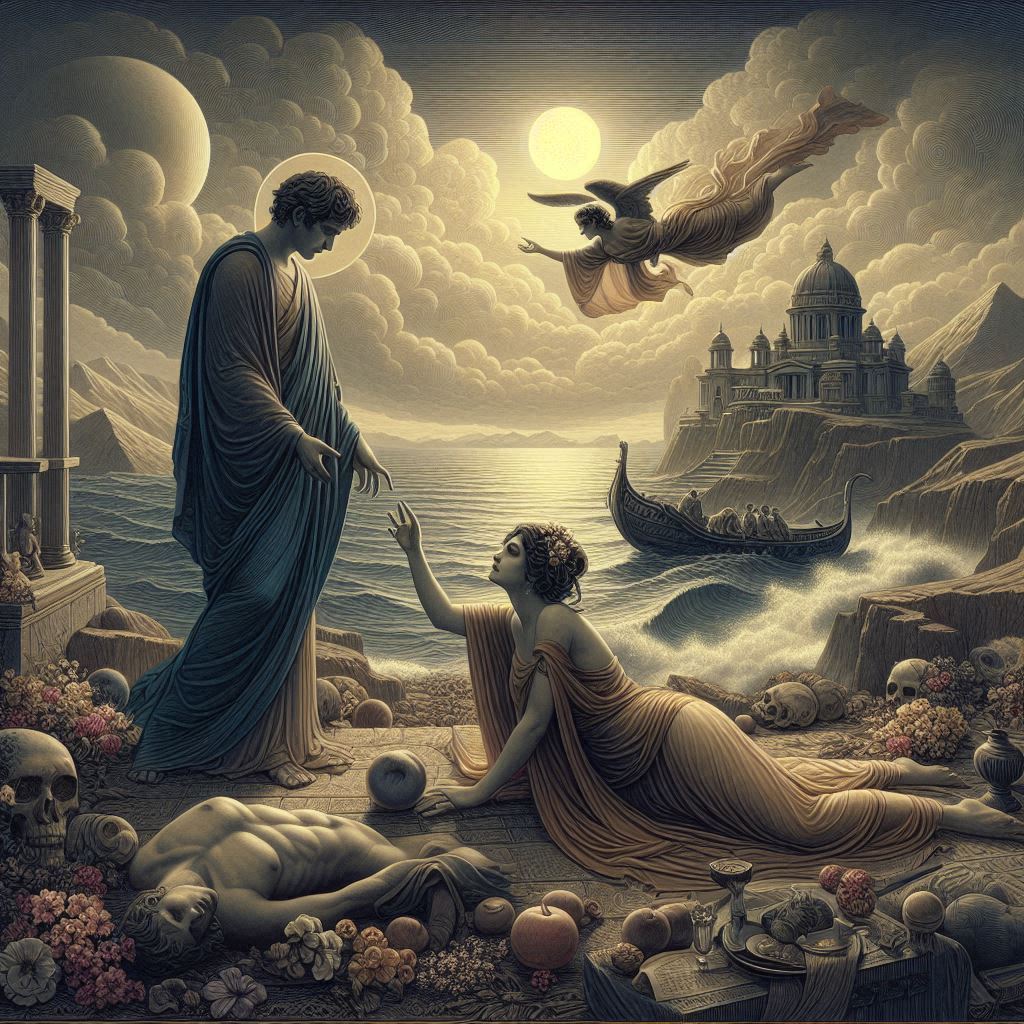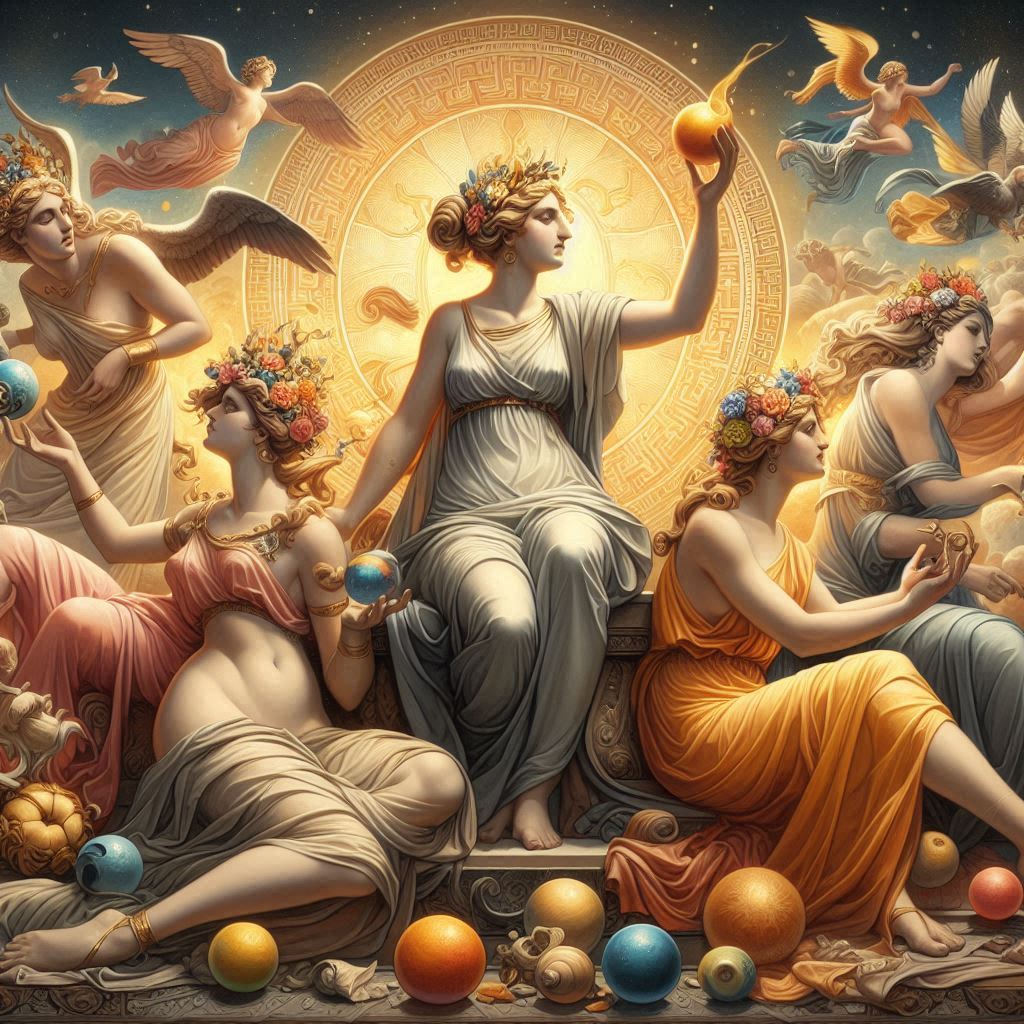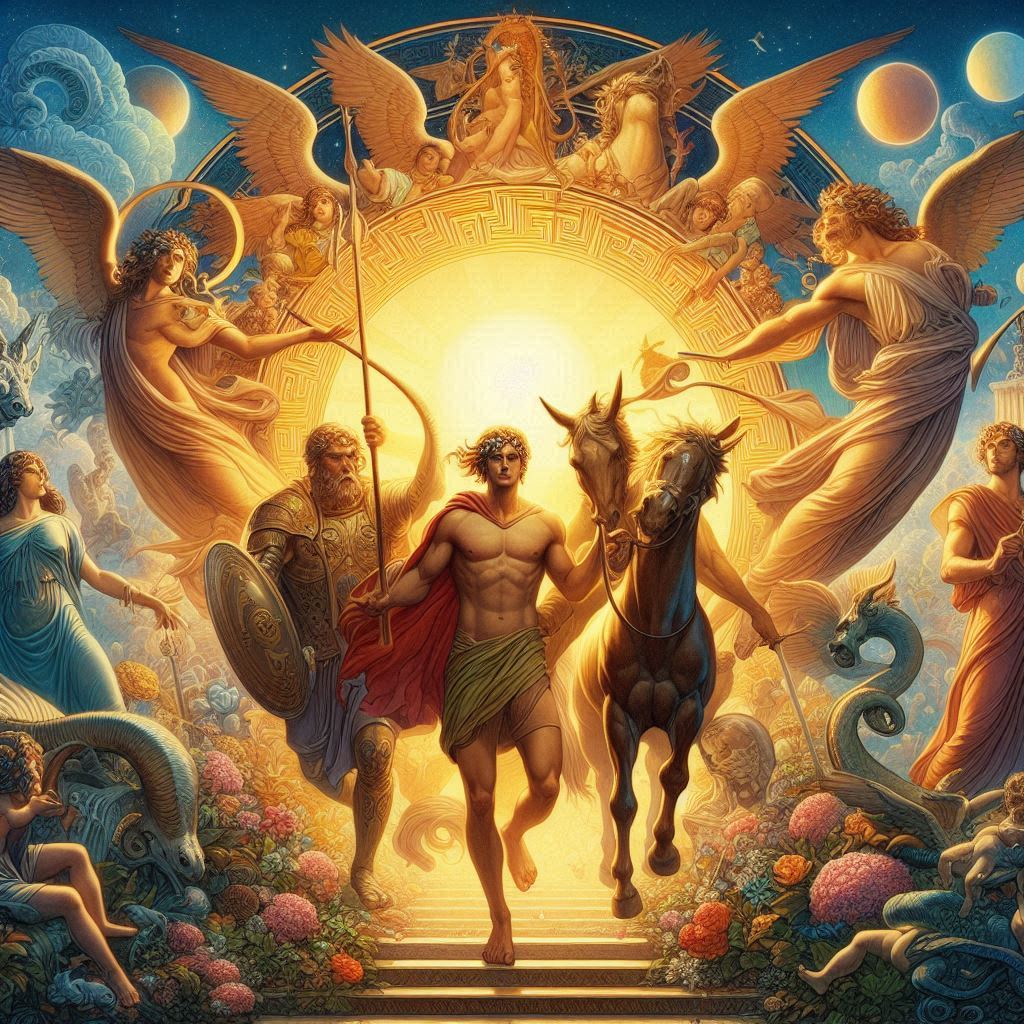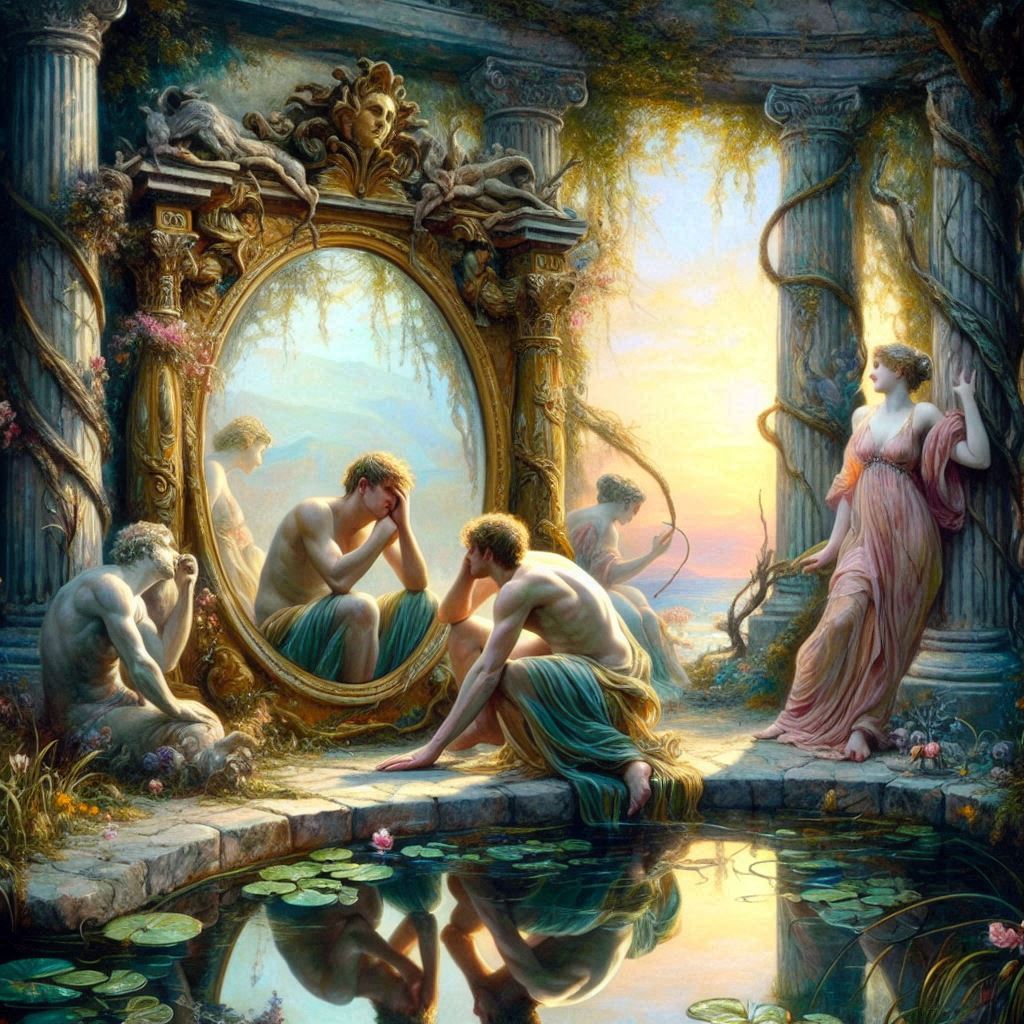The birth of Aphrodite, the goddess of love, beauty, and desire, is a captivating tale from Greek mythology that embodies themes of creation, passion, and the enduring power of love. As one of the twelve Olympian deities, Aphrodite’s origins are shrouded in mystery and symbolism, reflecting humanity’s fascination with beauty, attraction, and the complexities of romantic relationships. Exploring the myth of Aphrodite’s birth offers insights into ancient Greek beliefs about love, beauty, and the divine feminine.
According to mythology, Aphrodite’s birth is linked to the primordial forces of the cosmos and the interplay of gods and elements. The most famous account of her birth is attributed to the poet Hesiod in his work “Theogony,” where he describes Aphrodite as emerging from the sea foam (aphros in Greek) near the island of Cyprus. This iconic image of Aphrodite rising from the waves encapsulates her association with the sea, fertility, and the transformative power of love.
The circumstances of Aphrodite’s birth vary in different versions of the myth, but a common thread is her connection to the forces of nature and the divine. In some accounts, Aphrodite is born as the daughter of Zeus, the king of the gods, and Dione, a Titaness associated with the earth and fertility. In others, she is born from the severed genitals of Uranus, the sky god, which are cast into the sea and give rise to her divine form.
The symbolism of Aphrodite’s birth reflects ancient Greek beliefs about the origins of beauty, desire, and the creative energies of the cosmos. As the goddess of love and beauty, Aphrodite embodies the ideal of physical and spiritual attraction, inspiring passion, romance, and artistic expression. Her mythological attributes, including her association with roses, doves, seashells, and mirrors, symbolize the allure and complexity of love and desire.
Aphrodite’s role in Greek mythology extends beyond her birth to her interactions with other deities, mortals, and legendary figures. She is often depicted as a powerful and influential goddess whose presence can inspire both joy and turmoil in the hearts of gods and mortals alike. Her beauty and charm are legendary, capable of captivating even the most stoic of gods and mortals.
One of Aphrodite’s most famous myths involves her role in the Trojan War, where her intervention sparks conflict and tragedy among the Olympian gods and mortal heroes. According to myth, Eris, the goddess of discord, is excluded from a wedding feast and retaliates by throwing a golden apple inscribed with the words “To the Fairest” among the goddesses in attendance. Aphrodite, Hera, and Athena each claim the apple, leading to a rivalry and contest for the title of the fairest goddess.
Zeus, unwilling to arbitrate the dispute, tasks Paris, a Trojan prince, with choosing the fairest goddess and awarding her the golden apple. Each goddess attempts to sway Paris with promises of power, wisdom, or love. Aphrodite, aware of Paris’s desires, offers him the love of the most beautiful mortal woman, Helen of Sparta, in exchange for the golden apple. Paris chooses Aphrodite as the fairest goddess, igniting the events that lead to the Trojan War.
The myth of Aphrodite’s involvement in the Trojan War underscores her influence over mortal affairs and her role as a catalyst for passion, desire, and conflict. Her actions and choices in the myth reflect the complexities of love, loyalty, and the consequences of divine intervention in mortal affairs.
Aphrodite’s mythology also includes stories of her romantic entanglements with other deities and mortals, including her marriage to Hephaestus, the god of craftsmanship, and her affairs with Ares, the god of war, and Adonis, a mortal youth renowned for his beauty. These myths explore themes of fidelity, passion, jealousy, and the transformative power of love, highlighting Aphrodite’s multifaceted nature as a goddess of both divine and mortal realms.
In art and literature, Aphrodite is often depicted in various forms, including as a radiant goddess emerging from the sea, as a sensual and seductive figure surrounded by roses and doves, or as a majestic deity presiding over love, beauty, and fertility. Her influence extends to the realms of poetry, music, dance, and visual arts, inspiring artists, writers, and creators throughout history to explore the themes of love, desire, and the human experience.
The enduring appeal of Aphrodite’s mythology lies in its exploration of universal themes such as love, beauty, desire, and the complexities of human relationships. Her story resonates across cultures and generations, transcending time and geography to symbolize the enduring power of love and the eternal quest for beauty and connection.
